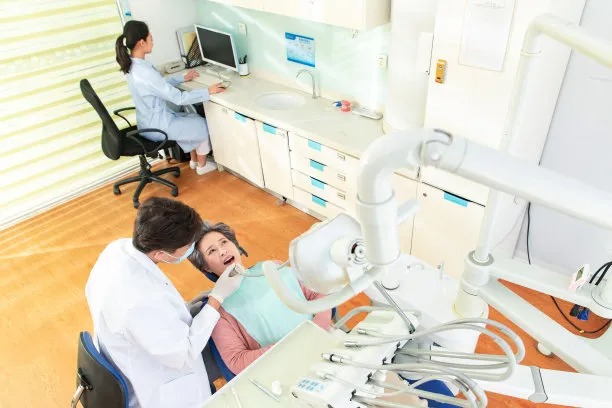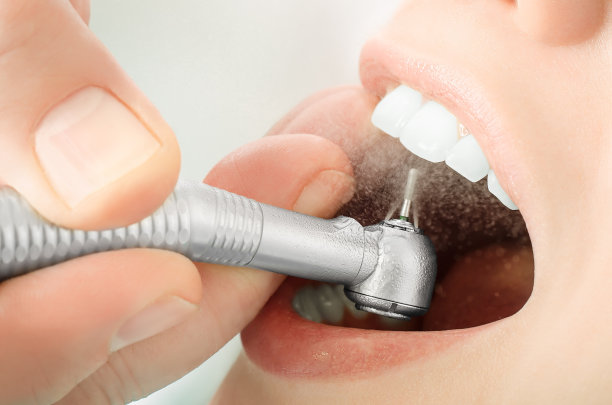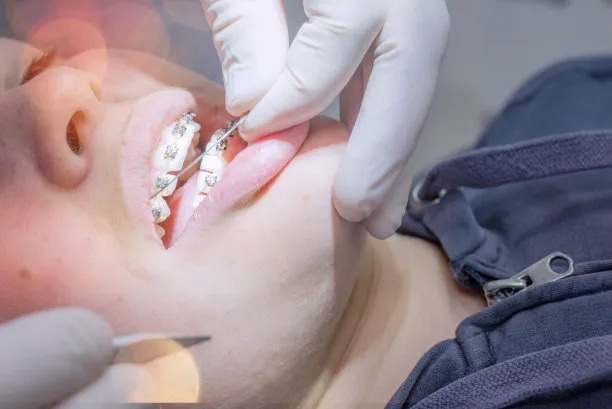Summary: Dental fillings are a common dental procedure that aims to restore the function and integrity of a tooth damaged by decay or injury. To ensure successful dental filling and promote optimal oral health post-procedure, patients must follow certain essential precautions. This article discusses the importance of thorough post-care hygiene, dietary adjustments, regular dental check-ups, and communication with your dentist. By adhering to these precautions, individuals can prevent complications, ensure the longevity of the filling, and maintain overall oral health. Understanding and implementing these strategies can significantly enhance the effectiveness of dental fillings, leading to healthier smiles and a better quality of life.
1. Importance of Post-Care Oral Hygiene

Maintaining optimal oral hygiene immediately after receiving a dental filling is crucial. Proper brushing and flossing help remove food particles and plaque from around the filling site, reducing the risk of further decay. It is essential to use a soft-bristled toothbrush during the first few days after the procedure, as the area may be sensitive. Gentle brushing minimizes irritation while still keeping the area clean.
In addition to utilizing a soft toothbrush, using an antimicrobial mouthwash can further support healing. This rinse can help eliminate bacteria that regular brushing may miss while also reducing inflammation in the surrounding gums. Patients should follow their dentists instructions regarding the timing for resuming normal oral care practices.
Finally, paying attention to the condition of the filling during oral hygiene routines is vital. If a patient notices any changes such as sensitivity, discomfort, or discoloration, they should contact their dentist immediately. Early intervention can prevent more serious complications down the line.
2. Dietary Adjustments for a Healthy Mouth
After a dental filling, it is vital to make temporary dietary adjustments to support healing and prevent complications. The initial hours following the procedure are particularly important. Patients are often advised to avoid consuming hot beverages or foods, as heat can aggravate the sensitive filling material. Instead, opting for cool or room temperature items is a wise choice.
Additionally, avoiding sticky or hard foods is crucial in the first few days post-filling. Foods like chewing gum, candies, or tough bread can dislodge the filling or put undue pressure on it. Patients should focus on soft foods like yogurt, applesauce, or smoothies during this period to facilitate easier chewing and to reduce sensitivity.
In the long term, maintaining a balanced diet enriched with vitamins and minerals is essential for overall oral health. Foods high in calcium and phosphorus help strengthen teeth, while plenty of water intake ensures adequate saliva production, promoting healthier oral ecosystems.
3. The Need for Regular Dental Check-Ups
Regular dental check-ups act as a critical component in promoting oral health, especially after a dental filling. These appointments ensure that your dentist can monitor the condition of your fillings and detect any potential issues early on. A proactive approach can help address problems before they become severe, saving time and expenses for patients.
Moreover, during these visits, dental professionals can provide personalized recommendations for maintaining good oral hygiene. They can offer insights into optimal brushing and flossing techniques tailored to the individuals dental health, including areas around fillings that require extra attention.
Pediatric patients, in particular, should have routine check-ups scheduled every six months to enable practitioners to track their oral development. This vigilance is essential for maintaining a healthy mouth, as dental issues can arise unexpectedly in younger populations.
4. Communication with Your Dentist is Crucial
Open communication with your dentist is vital for ensuring the success of dental fillings. Patients should feel encouraged to speak up about any discomfort they experience after the procedure. Persistent pain or sensitivity may indicate that further evaluation is necessary, and addressing these concerns promptly can prevent complications.
Additionally, discussing any changes in diet or oral hygiene routines with the dental team ensures that they fully understand the patients lifestyle and can provide targeted advice. Having a comprehensive dialogue about medical history and any medications can also help the dentist deliver effective care specific to the patients needs.
Lastly, patients should not hesitate to seek clarification about post-procedure instructions. Understanding their oral care regimen post-filling empowers patients to take charge of their health, leading to better outcomes and fewer follow-up appointments to address preventable issues.
Summary:
In conclusion, following essential precautions post-dental filling greatly enhances both the efficacy of the treatment and overall oral health. By prioritizing oral hygiene, making prudent dietary choices, scheduling regular check-ups, and ensuring clear communication with dental professionals, individuals can safeguard their dental investments for years to come.
This article is compiled by Vickong Dental and the content is for reference only.
Vickong Dental
Vickong Dental is a large medical group established in Hong Kong in 2008 by professors from well-known medical universities in Guangdong and Hong Kong, as well as medical doctors from key national '985' universities (including Master's supervisors and senior professors). The chain of branches brings together expert dentists with PhDs and Master's degrees from Hong Kong and Mainland China, committed to providing high-quality dental treatment.
"Vickong Dental Practices the University Motto of 'Healing and Serving Society,' with a Stable Operation for Sixteen Years. It Has Been honored with Hong Kong Enterprise Leaders's Choice,' and is a Global Trusted Implant Center for the Nobel Implant System. Recommended by Hong Kong Metro Broadcast and Guangdong Television, it Serves Customers from Over Thirty Countries and Regions, Gaining the Trust and Favor of Citizens from the Guangdong-Hong Kong-Macau Greater Bay Area and Surrounding Cities.

Thousands of customers' unanimous praise
The most recognized and highly recommended dental service by customers in the Guangdong-Hong Kong-Macau Greater Bay Area
We Ensure You Receive Detailed Care and Attention Here
Hong Kong standards, Shenzhen prices, Your Trusted English-speaking dentists

Vickong Dental Medical-Grade Instrument Disinfection Process
Vickong Dental Medical-Grade Instrument Disinfection Process

Vickong Dental Chain: A Warm and Comfortable Environment for Treatment






Appointment Hours

Q&A
Why choose Vickong Dental?
Vickong Dental practices the university motto 「Medicine to Benefit Society」, with each branch bringing together highly qualified dentists with doctoral and master’s degrees from Hong Kong and the Mainland, and has maintained seventeen years of steady operation。Recipient of 「2024 Hong Kong Enterprise Leaders Brand」, 「2025 Hong Kong Enterprise Leaders Brand」, a Nobel Biocare Global Trusted Implant Center, and a brand recommended by Metro Radio Hong Kong and Guangdong TV。
To date, we have served customers from more than thirty countries and regions,earning exceptionally high word-of-mouth recognition and trusted recommendations from residents across the Guangdong-Hong Kong-Macao Greater Bay Area and surrounding cities
We have eight major branches in Zhuhai、Shenzhen,and a consultation and service assurance center in Hong Kong,so you can book a free consultation at any time for any questions,which is very reassuring.
If I do not accept the quotation after the CT scan, will I be charged??
No! As long as the actual treatment has not started, you will not be charged any fees.
Will there be any additional charges during the treatment process?
No, there won’t be any additional charges. Before treatment begins, we will clearly explain the treatment plan and its corresponding fees. Only after the patient agrees and signs the consent form will we proceed with the dental service.
Can I pay in Hong Kong dollars?
Yes. Vickong Dental accepts payment in Hong Kong dollars. The amount will be converted based on the exchange rate of the day, and the applicable rate will be clearly communicated to you in advance.
Can I reschedule my appointment at any time?
Yes. Please contact us via **WeChat** or **WhatsApp** as early as possible, providing your original appointment time and details, along with your preferred new date and time slot for rescheduling.













